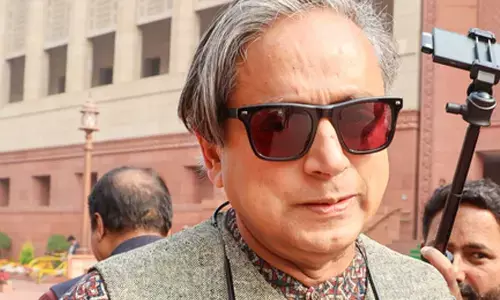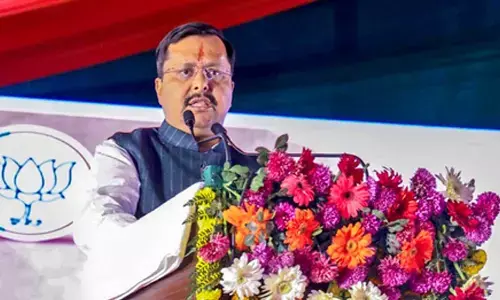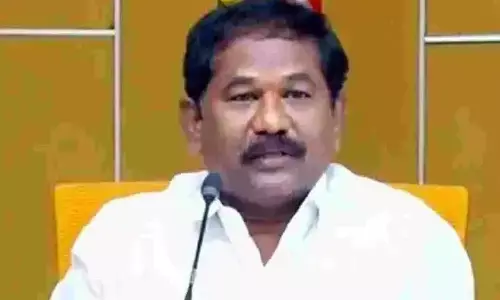Welcoming the New Year

Telugu new year provides a small lesson in philosophy. Even as children we are told to realise how life is a mix of sweet, bitter, sour, pungent and such experiences. We eat this mixture with some reluctance and equanimity. We are told to continue equanimity in the life ahead
All our worldly experience is broadly in three categories – knowledge of a place, knowledge of an object, and knowledge of the interval between two experiences. If we have coffee in the morning and later have breakfast, the knowledge of the gap period is the experience of time. This knowledge needs an observer.
But when did time start? We tend to say that it started with God. But the Indian tradition defines the Supreme Reality as infinitely existing consciousness. It is beyond time. In that there is no observer and observed because there is nothing beyond infinity which can be observed. Hence the philosophers visualized the idea of consciousness manifesting as the material world. This power of manifestation is called the creator, an intelligent entity in the infinite ocean of consciousness. Vedanta compares the Supreme Reality to an ocean and the manifesting power to a huge wave in that ocean. This wave, though essentially water, has a name and form. When creation takes place and when intelligent beings evolve, time comes into existence, because time exists only when there is an observer. The next question is, ‘when did creation start’? This is told in our almanacs in an astonishing manner. Carl Sagan, the astronomer, writes how Hinduism “is the only religion in which the timescales correspond to those of modern scientific cosmology. Its cycles run from our ordinary day and night to a day and night of Brahma, 8.64 billion years long. Longer than the age of the Earth or the Sun and about half the time since the Big Bang”.
Coming now to this Brahma, the creator, we are in a cycle of creation named the white boar (sveta-varaha). In each cycle there are subunits of time, and we are in such a subunit. There are smaller cycles of sixty years each and in this we are welcoming a year named Krodhi, the angry one. About three years ago we had an inauspicious year which brought us covid. This year talks of conflicts all over. Perhaps the electoral battles in several countries across the world are a symptom.We approach the passage of time in two ways. One is to welcome a point in time called the new year and celebrate, enjoy, and have fun. Another is to take stock of the progress in our tasks or progress in the spiritual path. The Mahabharata says that time is a friend of none. It cooks (pachati) people, in the sense that it compulsorily gives the fruit of all our actions.
Here the choice is with the individual, whether to drift in the flow of time or create oneself according to one’s own will. Speaking in the context of kings, the Mahabharata poses a question whether a king is a mere product of his times or whether he can create a new era. Kunti conveys her message to Dharmaraja that his duty was to show valour, follow the duty of a kshatriya and become the creator of time, a creator of history. A king, by his good rule, can create krita yuga, a righteous age, or by an unwise rule can create kali yuga, the troubled times. Applying this to the individual, we may note that we can create our own new year, a fruitful one, ‘a bringer of new things’, as Ulysses says in Tennyson’s poem. Bhartrihari analyses the quality time we spend on self-improvement. He notes how most of our time is spent in sleep, in childhood and youthful plays, in eking out livelihood and with infirmities of old age. In most cases, hardly any time is spent on knowledge leading to happiness.
Modern world provides additional distractions such as WhatsApp. It is like time, neither a friend, nor a foe. It can be a great help for knowledge or can be a psychotropic addiction. We get drifted by the agenda of others, finding no time for any intelligent work. Claiming our own time is the best gift we can give to ourselves.Telugu new year provides a small lesson in philosophy. Even as children we are told to realise how life is a mix of sweet, bitter, sour, pungent and such experiences. We eat this mixture with some reluctance and equanimity. We are told to continue equanimity in the life ahead.
(The writer is a former DGP, Andhra Pradesh)















